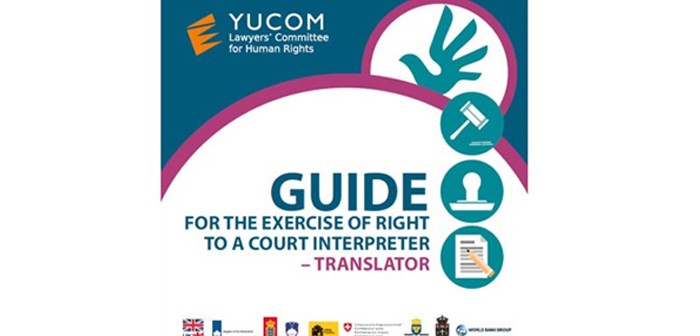Guide for Exercising the Right to a Court Interpreter – a Translator Guide for exercising the right to a court interpreter – a translator is designed for the parties (for the plaintiff and the defendant) and other participants in civil proceedings in order to enable everyone to participate before the court on an equal footing.
During the development of the Functional Analysis of the Judiciary in Serbia from 2014, the Multi Donor Trust Fund for Justice Sector in Serbia noted as a deficiency an inadequate access to information on translation service providers, that is, court interpreters and the need to make the price of this service reasonable for effective access to justice, i.e. the judiciary.
Guide for exercising the right to a court interpreter – a translator should serve to raise awareness of the role and the right to a court interpreter. In a convenient way it provides basic information about court interpreters, how they are engaged, and the costs that a party or other participant must pay, if used by this law. In this way, the party and other participants in the civil proceedings may be instructed in the manner of exercising this right.
The main goal of the Guide is to provide access to justice to people who do not use Serbian language, that is, the language of the national minority in the courts where this language is in official use, as well as help to deaf, mute and blind persons, as they are given instructions on how to exercise the right to judicial interpreter in civil proceedings.
Guide to the right to a court interpreter – a translator was prepared by the Lawyers’ Committee for Human Rights – YUCOM in cooperation with the MDTF group. The guide is also translated into the languages of national minorities: Albanian, Bulgarian, Romanian and Hungarian and English.





